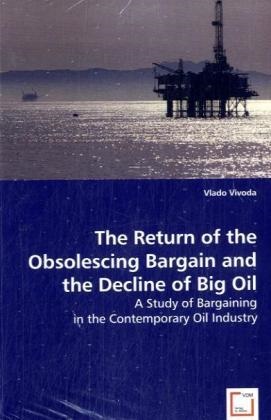Read more
This book centres on studying intricate bargaining relationships between the major actors in the highly politicised oil industry. By covering the period between 1998 and 2007, this study focuses exclusively on contemporary bargaining in the oil industry. In the current decade, which unlike previous two cooperative decades, can be characterised as conflictual, and thus politicised, the structure of the oil industry can best be understood by studying bargaining between numerousactors, the main of which are the international oil companies (IOCs), oil-exporting states, oil-importing states, and the national oil companies (NOCs).The central argument is that due to their weak relative bargaining power, the IOCs have been on the losing side in their bargaining with oil exporting countries and/or their NOCs in the current decade when compared to the late 1990s, and thus, we are witnessing the return of the obsolescing bargain. High oil prices, increased industry competition, lack of alternative investment options for IOCs, and an increasingly hostile political climate in many oil-exporting states are some of the main reasons why the IOCs are facing possibly unsurmountable hurdles.

